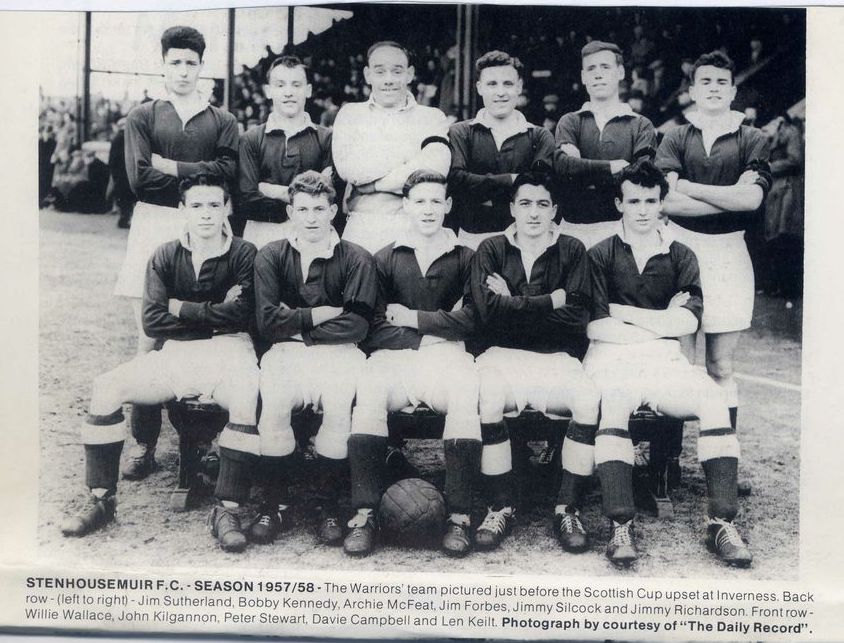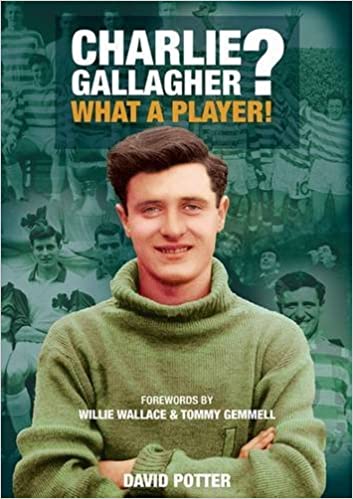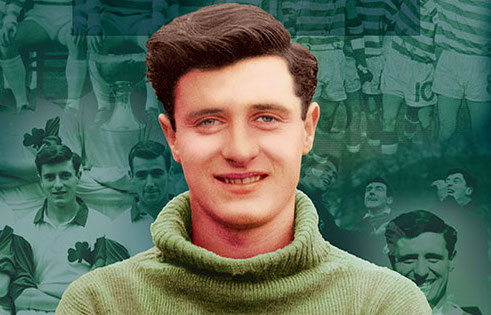Charlie’s colleague Willie Wallace hints at this dark side of Second Division football in his book Heart Of A Lion. He was playing for Stenhousemuir in season 1958/59 and the team was doing well, but then he says “Towards the end of that season, we met the league leaders Arbroath at Ochilview. Much to my delight we beat the “Red Lichties” 7-0 and pulled up to within a few points of them, with Greenock Morton one point behind. Promotion seemed very much on the cards, and I was excited.

“Strangely, however, things did not work out in our favour in the final few games of the season, during which there were a lot of mysterious team changes. Of course, promotion could have been a financial disaster for the club, which would have found it very difficult to maintain a first division place. The ground would have required considerable upgrading and the support base was only small. Anyway, for whatever reasons, we played some very unusual team combinations in those remaining games of the season, results didn’t go our way and the promotion that had seemed more than likely only a few weeks earlier didn’t come about”.
Jackie Stewart was Dumbarton’s manager in 1970. Not to be confused with the racing car driver of the same name, he had been there since 1968 and, ambitious and progressive, he was slowly building up a good side aided by an energetic Secretary by the name of John Hosie. When they heard that Gallagher was available, they moved quickly and offered him terms. As Charlie had been given a free transfer from Celtic, there was no problem. Possibly Sean Fallon who would in later years become a Director of Dumbarton was influential in all this, but on 18 June 1970, without any great fanfare of trumpets other than those of the British General Election and the Mexican World Cup, Charlie Gallagher joined Dumbarton and became a Son of the Rock, the nickname given to the club because of Dumbarton Rock which was the obvious landmark which dominated the geography of the area.

This was part of Stewart’s plan to rebuild Dumbarton. Quite a few players had been dispensed with, and a few efforts had been made to bring in big name players. The attempt to lure Denis Law was, unsurprisingly, a failure. A more realistic target was Davie Wilson, once of Rangers but now with Dundee United. Stewart did not succeed the first time but kept trying and eventually, a year later, got his man. Wilson and Gallagher from different sides of the Old Firm would team up very well together. Both indeed were tremendously talented players and had a tremendous mutual respect for each other.
Dumbarton’s first challenge in the 1970/71 season was the Scottish League Cup. Drawn in a section against Berwick Rangers, Alloa Athletic and Brechin City, Jackie Stewart’s new look team surprised even their most devoted of their small but loyal support by winning all their games except for a draw with Brechin City at Boghead and found themselves in the two legged quarter final against Partick Thistle. The first leg was played on 9 September at Firhill on a night of high winds and torrential rain, and the Sons did well to come back from being 2 goals down, and to bring it back to 2-2, then went behind again, before a Gallagher shot was deflected home to earn a 3-3 draw which was much appreciated and enjoyed by the 4,000 crowd huddled under what shelter there was at Firhill.
The second leg two weeks later at Boghead was Dumbarton’s best night for many years as the team qualified for the semi-final of the Scottish League Cup for the first time ever. Two men called Gallagher, Brian and Charlie, won the game 3-2 for Dumbarton before an excited crowd of 7,000. The Evening Times says that Charlie is “not as sharp as he used to be but he uses his experience to full advantage”. He scored the first goal, beating the Partick Thistle goalkeeper called according to The Evening Times “Bobby Rough” when he became better known as Alan! Full time came to tremendous scenes of excitement among the Boghead faithful who had had little enough to cheer about over the past few years.

The other semi-finalists were Celtic, Rangers and Cowdenbeath. Dumbarton would have wanted Cowdenbeath, but as luck would have it, it was Celtic who came out in the draw for the game to be played on Wednesday 7 October 1970. 25,838 (the biggest crowd that Dumbarton had played in front of for many years, if not all their history), came to Hampden to see a game in which Dumbarton might well have provided one of Scottish football’s biggest ever giant killings.

The crowd contained a fair amount of black and gold scarves, showing the effect that this game had on the town. But before the game began, Charlie was amazed and shocked to overhear his old Manager Jock Stein tell Davie Hay who would have been Charlie’s direct opponent in a voice loud enough to be heard by Charlie himself to “break that wee bar steward’s (word change here folks) legs”.

It is, of course, by no means uncommon for such things to be said before a game. Charlie had heard it from Bobby Shearer of Rangers and a few other coarse defenders that Scottish football produced on an all too regular production line. But this was Jock Stein!
Charlie, of course, knew that Jock was frequently wound up to an unhealthy extent before a game and often said things that he didn’t really mean, but it was still shocking to hear that. It was particularly shocking to hear that sort of nonsense coming from a man who was a legend in the Scottish game and who would continue to be so until his death. It would also have been nice to have thought that Charlie’s contribution to Celtic’s successes in the late 1960s, 1968 in particular, had not been entirely forgotten!

Davie Hay, always a scrupulously fair and immensely talented player, and a good friend of Charlie in any case, was quite embarrassed to hear this and thankfully did not carry out his Manager’s instructions!
Charlie however had a piece of retaliation. At one point while clearing a ball, Charlie kicked it straight into the Celtic dugout. Both his own Manager Jackie Stewart and the referee looked at him in disapproval as if he had done it deliberately, especially when Jock Stein in trying to avoid the ball, hit his head against the roof of the dugout! It was one of the few times in football that Charlie, who could boast about never having been booked on senior football, was given a talking to by the referee.

The game contained a rarity of both goalkeepers being called Williams – Evan for Celtic and Laurie for Dumbarton – and it was Laurie who earned all the plaudits with a double save of a penalty kick from Willie Wallace in extra time, but before that Dumbarton had more than held their own with The Glasgow Herald singling out Gallagher …”and their own forwards, master-minded by Charlie Gallagher, a former Celtic player of 12 years’ experience, had the Parkhead defence under pressure for spells” The 0-0 draw marked a great display from Dumbarton, even though Celtic had had to play for a long period of the second half without the influential Bobby Murdoch who was taken off injured.

If anyone thought that this game was a fluke – and it certainly looked that way when Dumbarton managed to lose 1-3 to Alloa on the following Saturday, while Celtic had been lucky to scrape through 1-0 against St Johnstone – such thoughts were dispelled in the replay on Monday 12 October again at Hampden played (most unusually) before an increased attendance of 32,000. After Celtic had taken a 2-0 lead, Gallagher once again took charge of the midfield of the park and inspired the part-timers to score twice and take Celtic to extra time before inevitably succumbing to full time training in the added 30 minutes.



